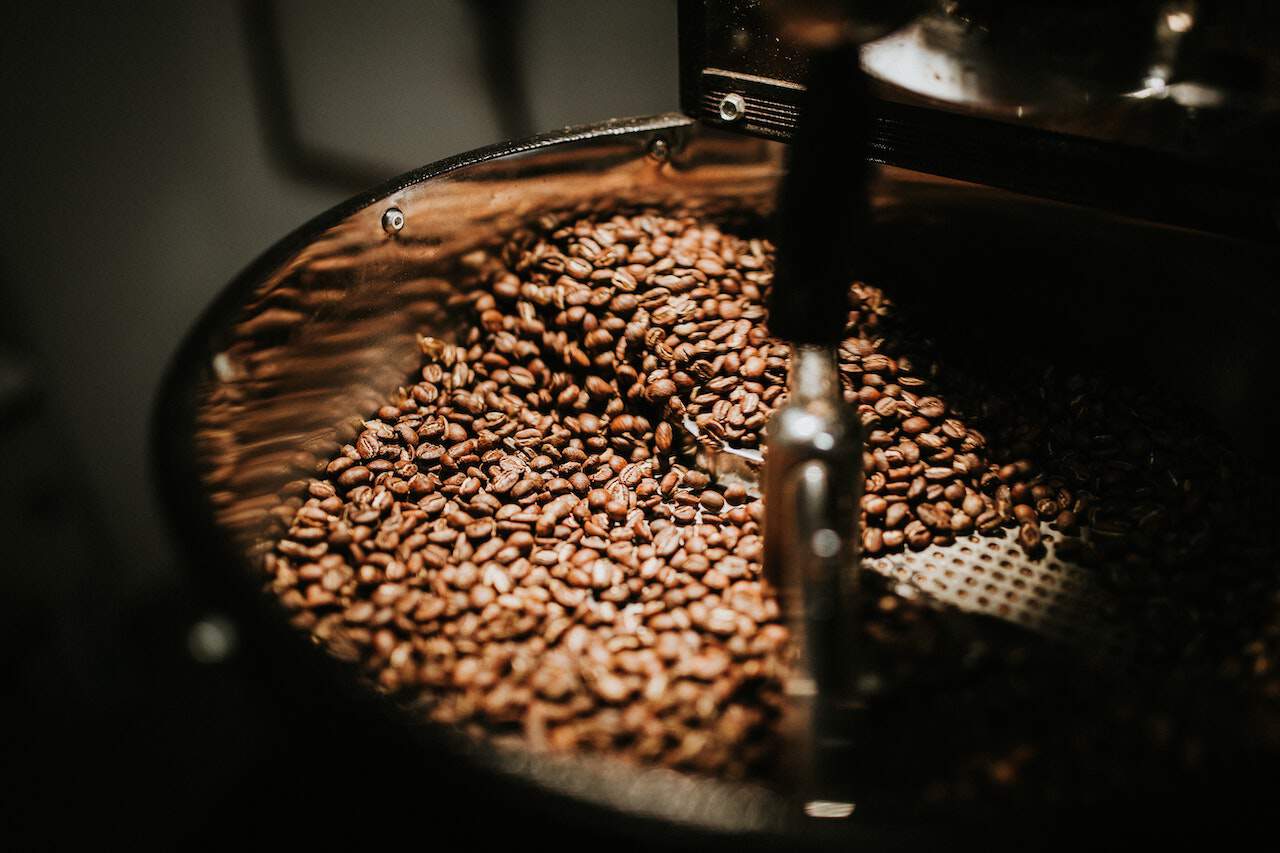Ahh, having a refreshing ice-cold fizzy drink on a hot summer day is the perfect feeling. It doesn’t get better than this, does it?
But wait, we have all seen articles upon articles, videos, and lectures about just how unhealthy these carbonated drinks are.
Ever wondered just how much caffeine is added to one of the more popular eye-catching neon-green drinks? Well, grab a cold one, sit back, and join us as we explore the contents of this refreshing beverage.
How Much Caffeine is in Mountain Dew?

Let’s dive straight into the matter that is, the caffeine content in Mountain Dew. A 12-ounce can of Mountain Dew holds around 54 milligrams of caffeine. This means 54 ml caffeine for every 355 ml can. That’ s more than your average cola but not quite enough to send you soaring into orbit!
Mountain Dew is known for its zesty citrus flavor and, of course, its ability to give you a little pick-me-up. But exactly how much caffeine are we talking about here? We know 355 ml per can may not sound much compared to the other highly caffeinated drinks.
But trust us, it’s enough to give you a gentle nudge of alertness and keep those taste buds dancing. But that’s not the only trick Mountain has up its sleeve. The special edition drinks, such as Game Fuel, boast even more caffeine for those who need a bigger buzz.
So, while Mountain Dew isn’t the most caffeinated drink in town, it’s no slouch, either. But caffeine isn’t the only factor making Dew such a unique drink.
Stick around as we explore more about this iconic neon-green beverage.
Why Does Mountain Dew Contain Caffeine?
Now, you might be wondering why Mountain Dew contains caffeine in the first place.
Well, this story goes all the way back to its roots. When Mountain Dew was first created, it was intended as a citrus-flavored mixer for whiskey.
Caffeine was added not just for its stimulating kick but also for its potential to enhance the spirit’s flavor.
Over the years, Mountain Dew evolved into a standalone soft drink, and the caffeine stayed. It became part of this carbonated drink’s identity. It contributes to the unique taste and gives it that extra edge in the world of sodas.
Although caffeine is not the healthiest thing to consume, it also has its undeniable perks.
Caffeine can give you a very teeny tiny energy boost. That makes Mountain Dew a popular choice for those looking for a little stimulation for the nervous system. Or a boost of energy during a long day or a late-night gaming session of Dungeons and Dragons.
So, the caffeine in Mountain Dew has a surprising and unexpected history, which continues to be a key ingredient in separating Mountain Dew from other sodas.
How Much Caffeine is There in a Can of Mountain Dew?
Let’s break down the caffeine content in a Mountain Dew can, considering the available variety.
1. Original Mountain Dew
The classic, full-flavor Mountain Dew typically contains around 54 milligrams of caffeine per 12-ounce (355 ml) can.
2. Diet Mountain Dew
If you’re watching your calories, Diet Mountain Dew is a lighter choice with a similar caffeine content to the original.
3. Mountain Dew Zero Sugar (Zero Calories)
For those looking to cut calories but keep the Dew flavor, Mountain Dew Zero Sugar is a go-to option, which contains around 54 milligrams of caffeine per 12-ounce can.
4. Other Variants
Mountain Dew loves to experiment with new flavors and limited editions. These variants, like Mountain Dew Game fuel, might have slightly higher caffeine content than the standard.
Ingredients in Mountain Dew
Let’s get into the dirty stuff now, shall we? What exactly is inside this drink? We’re here to break it down for you.
Well, the ingredients include:
- Carbonated water
- High fructose corn syrup
- Concentrated orange juice
- Citric acid
- Natural and artificial flavors
- Sodium benzoate to keep things fresh
- Caffeine for that zing
- Sodium citrate
- Erythorbic acid to protect that taste
- Gum arabic
- Calcium disodium EDTA to preserve the flavor
- Brominated vegetable oil
- A dash of Yellow 5 for that signature hue.
These ingredients combine to create a distinctive taste and that iconic vibrant color.
Mountain Dew Compared to Other Drinks in Terms of Caffeine
This is the exciting part that everyone’s been waiting for. Let’s play the caffeine comparison game.
Here’s how Mountain Dew compares in caffeine content compared to other popular drinks:
1. Coffee
When it comes to caffeine, coffee reigns supreme. A standard 8-ounce cup of nicely brewed coffee contains around 95 milligrams of caffeine or maybe even more. This is significantly more than Mountain Dew’s 54 milligrams per 12-ounce can.
2. Black Coffee
If you like your coffee black and strong, you’re in for an even bigger caffeine punch. As anticipated, an 8-ounce cup of black coffee can pack up to anywhere from 95 to 200 milligrams of caffeine, depending on how it’s brewed. That’s a whole lot more caffeine compared to Mountain Dew.
3. Latte
Lattes are the nicer versions of coffee. It contains espresso shots and milk and generally has less caffeine than black coffee. A typical 12-ounce (355 ml) latte might have around 63 milligrams of caffeine, which is still more than a can of Mountain Dew.
4. Coca-Cola
This may come as a surprise, but Mountain Dew and Coca-Cola are pretty close in the caffeine department. A standard 12-ounce can of Coca-Cola contains roughly 34 milligrams of caffeine. Yes, unexpectedly, that is slightly less than Mountain Dew.
5. Pepsi
Like Coca-Cola, Pepsi also contains around 34 milligrams of caffeine per 12-ounce can, making it comparable to both Coca-Cola and less caffeinated than Mountain Dew.
Is Mountain Dew Healthy for You to Consume Regularly?
Let’s be real here. Like many sugary carbonated drinks, Mountain Dew isn’t a poster for a child’s healthy diet. Regularly consuming Mountain Dew can have several downsides.
First of all, it’s loaded with sugar, which, if consumed excessively every day, can lead to multiple health-related issues. It contributes to weight gain and dental issues and even potentially increases the risk of chronic health conditions. These health risks include heart disease and type 2 diabetes.
The caffeine content gives a quick buzz, which is okay occasionally but can lead to dependence and sleep disturbances if consumed excessively.
Mountain Dew also contains artificial flavors and additives like brominated vegetable oil, which has always sparked health concerns among dieticians.
Enjoying an occasional Mountain Dew as a treat is unlikely to cause any major harm. But overall, it’s wise to limit consumption. Opt for healthier beverage choices. Always prioritize a balanced diet that is rich in fruits, vegetables, and water.
Alternative Drinks of Mountain Dew to Avoid Caffeine
Hey, don’t get so bummed. Mountain Dew isn’t the healthiest option, sure. But it’s still okay to have it once in a while.
There are other cooler options to enjoy in the scorching heat of summer or at a social get-together with friends.
Here are some alternate options that we’ve gathered for you.
Mountain Dew Caffeine-Free
Believe it or not, Mountain Dew offers a caffeine-free version as well. You get the same great taste without the caffeine buzz, allowing you to savor the flavor without the kick!!
Fruit-Flavored Sodas
There are many fruit-flavored sodas, like lemon-lime or orange sodas, that are caffeine-free. And they offer a similar citrusy refreshment to Mountain Dew.
Sparkling Water with Citrus
If you’re after the fizz and a hint of citrus, sparkling water with a squeeze of lemon or lime will do. Trust us. It can be a simple, refreshing and caffeine-free option.
Fruit Juices
Go for 100% fruit juices like orange, grape, apple, or any citric fruit if you want a natural, caffeine-free burst of flavor.
Herbal Teas
Herbal teas like chamomile, peppermint, or fruity blends are caffeine-free and make for a soothing and flavorful alternative.
FAQs
Which soda has the highest caffeine?
The highest caffeine content among the major brands is often considered to be Pepsi Max. It typically contains more caffeine than other popular sodas, including Mountain Dew and Coca-Cola.
Does Mountain Dew have more caffeine than Coke?
Yes, Mountain Dew contains slightly more caffeine than Coca-Cola. A standard 12-ounce (355 ml) can of Mountain Dew contains around 54 milligrams of caffeine. And a can of Coca-Cola typically contains approximately 34 milligrams of caffeine.
What soda has no caffeine?
There are many sodas that are caffeine-free. Especially catering to those who prefer to avoid caffeine. Some examples include caffeine-free Coca-Cola, Pepsi, Sprite, and 7-Up versions. Many fruit-flavored sodas and even ginger ale are caffeine-free.
Is Mountain Dew vegan?
Mountain Dew is generally considered vegan-friendly. It doesn’t contain any animal-derived ingredients. But, checking the specific ingredients listed on the product packaging is still essential. Formulas can vary by region and manufacturers might also change their elements over time.
Final Words
We’ve established that Mountain Dew stands out with its unique flavor and moderate caffeine kick. It’s a tasty treat for the occasional indulgence but moderation is the key due to its sugar content and unhealthy ingredients.
Many caffeine-free alternatives are available for those of you who enjoy a soda without the caffeine buzz.
Your beverage adventure awaits. So enjoy responsibly, and here’s to all the refreshing sips and vibrant experiences that lie ahead of you.

